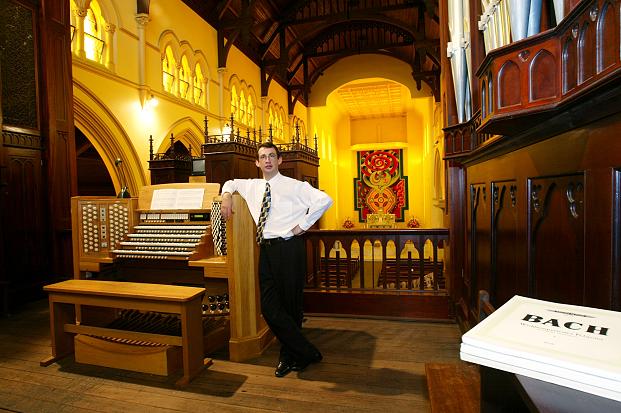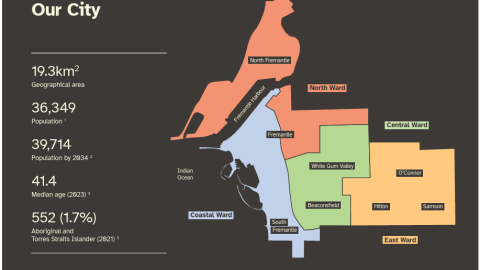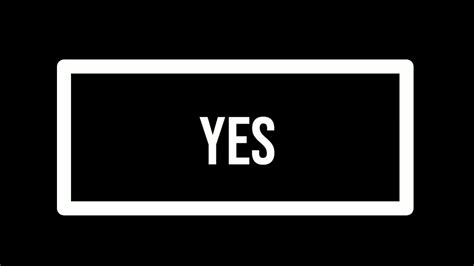Josh Wilson: Good morning, everyone. It’s fantastic to be down here at the Fremantle Fishing Boat Harbour, with my colleague Senator Don Farrell the Minister for Trade, my fellow Member for Fremantle Simone McGurk, who’s also representing the Western Australian minister, Don Punch, and industry representatives.
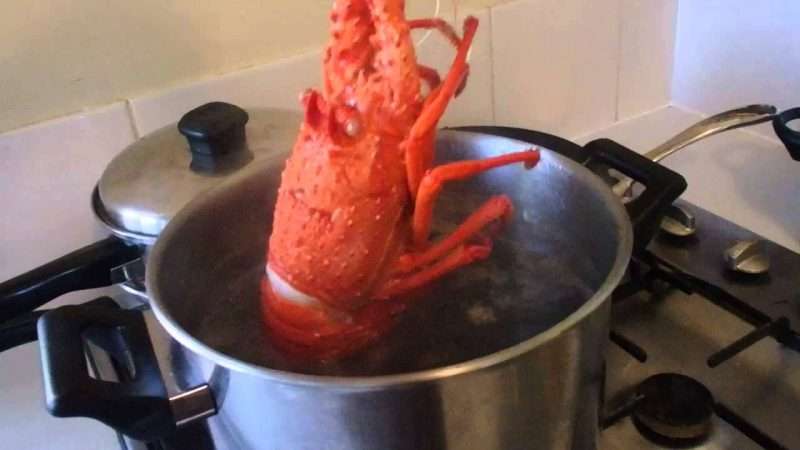
Credit YouTube
And, of course, we’re welcoming the resumption of the rock lobster trade, the crayfish trade, back into China. It’s a very, very significant achievement that the Albanese Government has worked steadily on for a considerable period of time. This is a really important fishery. It represents the large part of Australia’s production of lobster and crayfish. It’s a sustainable fishery, the first in the world to achieve MSC certification. It’s Western Australia’s most valuable fishery, and the cessation of trade with China did have a big impact here in Western Australia and Australia-wide. It cost the industry something like a billion dollars over the last four years, and so to see this trade resume is fantastic for us here in Fremantle – from Freo to Gero and beyond – for Western Australia and for Australia as a whole. And the timing is very good considering the season we’re about to come into.
To get to this point has taken a lot of work. I certainly want to pay tribute to the way that the industry has approached it, both to support fishers through what was a very difficult time but then also to continue to press the case to see this high-quality, sustainable Australian seafood be able to return in trade to China, which is obviously for our benefit but, frankly, very much for the benefit of the people of China who get to experience one of the best, and highest quality forms of seafood in the world.
To say more about the significance of the resumption of this trade, I’ll hand over to the Minister for Trade, Don Farrell.
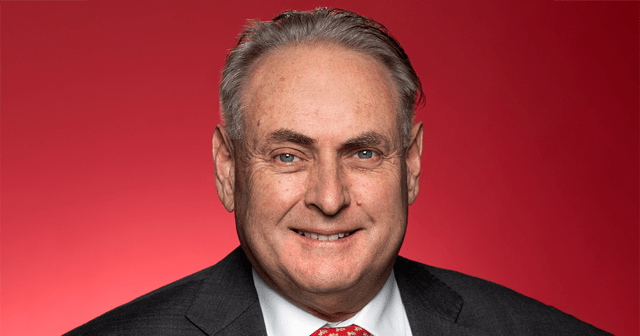
Minister for Trade, Don Farrell: Thank you, Josh, and it’s great to be here with Josh and Simone, the local State Member of Parliament, and Basil and the team from Western Rock Lobsters. This is a very significant day for Western Australia and it’s a significant day for all those very patient fishers who’ve been waiting for the resumption of trade into China.
When the Albanese Government was elected just over two and a half years ago there was $20 billion worth of trade impediments with the Chinese government. One by one, we’ve managed to get all of the products that had been subject to those impediments removed. And the one remaining product was magnificent Western Australian rock lobster. And, of course, on Thursday we heard the great news that the Prime Minister and the Chinese Premier had agreed on the resumption of that trade into China.
Now, what does that mean? Well, prior to the bans we used to send about $700 million worth of rock lobster into China over the course of a year. The vast bulk of that – almost $500 million – was western rock lobster. So the group that was most affected by the impediments was the West Australian fishery industry. So I’m very pleased that as a result of this decision that trade will now resume, and we’ll have the benefit of all the extra jobs that will be created in Western Australia, getting those products back into the Chinese market. And, of course, the Chinese consumers then get the advantage of the best rock lobsters in the world.
Our trade with China last year hit a record of $327 billion. What we’ve seen with all of the products [indistinct]… I’m confident that with the resumption of trade with China of rock lobster, we will very quickly get back our market into China.
But I want to thank the West Australian rock lobster industry for being so patient with the Federal Government in getting this issue resolved. There were plenty of times in the last few years when you could have given up hope. I never did because I knew the trajectory that we were on to stabilise our relationship with the Chinese government, meant that sooner or later we would resolve this issue. And I’m so pleased for all of the fishers in Western Australia, all of their workers, all of whom will benefit from this resumption of trade. So thank you to all of those patient fishers.
And I also want to thank the Western Australian government. They’ve understood how important this trade with China has been. It’s so important to the Western Australian economy generally and so important for jobs in Western Australia, and the Western Australian government has stood with us all of the way.
And I’d particularly like to thank my good friend Josh Wilson. Josh, coming from a port city in Western Australia, understands just how important this industry is, just how important it is to the prosperity of Western Australians but also the jobs of Western Australians. Thank you to Josh for all of the good work that you have done in supporting me and my team to get this result.
Now I’m going to hand over to Simone.
Simone McGurk: WA rock lobster industry accounts for the lion’s share of exports of live rock lobster to China and overseas. So the WA industry is more than South Australia, Tasmania and New Zealand combined. I think that just gives you an indication of the scale of the industry here but also the quality. If you match that with the quality of the product coming out of Western Australia and the sustainability of the industry, we know how important this is, and a potential this is for an export – as an export market.
I’d like to thank the Federal Government, Minister Farrell and his colleagues, for their work in being able to re-establish this relationship with an important trading partner, China. And we’re starting to see what a disaster the previous Liberal coalition was in this portfolio, and the real-world implications that had for local businesses. And we saw that here with fishermen and their companies here in Fremantle, and in Western Australia, that they had to quickly readjust. And while they did, they were very nimble, they looked at alternative markets to their credit, and did a great job of diversifying their markets, there was a drop off.
And as Minister Farrell said, the industry has been patient, it has been strategic, and it is a fantastic announcement to know that now going into the summer period – we were hearing from Basil and other fishers – that this is a crucial time as we come into December when you’re really starting to get maximum yields from the WA seas in terms of rock lobster. And then we’ll go into the Christmas period here in Western Australia and really – for many markets and then the Chinese New Year market.
So congratulations, again, to the Federal Albanese Government for their work in re‑establishing this important market. I look forward to seeing the benefits start to flow through to local businesses here in Western Australia, and up and down our fishing coast.
I’ll hand over to Minister Farrell for issues of the day, and then I’ll take questions.
Journalist: Just on the lifting of the ban, I just want to be clear, you’ve actually got an ironclad guarantee, more than just a verbal guarantee?
Minister for Trade: Look, we’ve been working for the resumption of this trade for the last two and a half years. Bit by bit, every single product that had been the subject of an impediment has been lifted, and I was always confident that we would get the restrictions on western rock lobster lifted. There are no conditions for the resumption of this trade. And as the Prime Minister has said, by Christmas we will be fully resumed into the Chinese market.
Why is that important? Of course, well, once we get back in before Christmas and then quickly after Christmas we’ve got the Chinese New Year, and, of course, that’s the biggest time of the year for the sale of western rock lobsters. So –
Journalist: So it is ironclad?
Minister for Trade: This is an ironclad guarantee. I’ve had a very warm relationship with my counterpart, Mr Wang Wentao, the Chinese Trade Minister. On every occasion when the Chinese government has said we are going to allow the resumption of these products, they’ve followed through, and they will follow through on lobster.
Journalist: But there are suspicions that we might have – there might have been you had to give up something to get something. Is there some, you know, special deal –
Minister for Trade: Quid pro quo?
Journalist: Yeah.
Minister for Trade: No.
Journalist: Can you rule that out?
Minister for Trade: No, there was no quid pro quo here. What the Albanese Government set out to do two and a half years ago was to stabilise the relationship with China. China is our largest trading partner. As I said before, $327 billion worth of trade last year, a record amount of trade, overwhelmingly in Australia’s favour. More than $100 million in Australia’s favour. It made sense for us to stabilise our relationship but at the same time do everything to protect our national security, and our national interests.
Now, one of the things in our national interest is the prosperity of our fishers – the people that you see around this harbour – and the jobs that go with that fishery industry. It’s very much in Australia’s interests that we stabilised that relationship. It’s good for the industry. It’s good for fishers and it’s good for workers in this industry.
Journalist: How can we trust that China might – you know, re-introduce a ban, not just on lobsters but on other Australian products into the future? I mean, what has this period taught us as a nation? What should we learn from it?
Minister for Trade: The lesson is that a strong, sensible, stable relationship with your largest trading partner is very much in Australia’s national interest. It’s been my job, the Foreign Minister, and the Prime Minister to bring that about. And, as I said, record trade. And if you go to China, as I may be doing in the next couple of weeks to the Chinese trade meeting, what we know is, Australia’s clean and green image with the Chinese consumer, means that we won’t just get lobster back into the Chinese market but we have the potential of getting a lot of other products.
The significance here I think is that we, having got back into the Chinese market, what we are encouraging all businesses to do, that includes the West Australian rock lobster industry, is to look at alternative markets as well. Don’t just have all of your eggs in the one basket. We’ve recently negotiated agreements with India. That’s the potential of a great market. We’re now back into the United Kingdom in a significant way.
Last week we reached agreement with the United Arab Emirates on a free trade agreement. We’ve renewed our agreement with Southeast Asia. So what I say to all exporters into China: don’t just put all of your eggs in the one basket. Look for alternative markets, and the Australian government is there to help you.
Just to give you one example, this year we started putting boots on the ground in Southeast Asia. We’ve spent $19 million employing extra people in Southeast Asia. That’s already resulted in $1 billion worth of new trade into Southeast Asia. So there’s lots of markets that we can get into, and it’s the ambition of the Australian government that we get into those markets.
Why are these markets so important? Well, what we know is this: if you’re an export-focused business and your profits are higher but, more importantly, the wages of your workers are higher. So it’s not only good for the country; it’s also good for the workers in the industry.
Journalist: Can I back track? You said that there are other products that have the potential to go to China. Are these new things that the government is looking at now?
Minister for Trade: Yes. So what you will find in a couple of weeks is the big Shanghai Trade Festival. You go into any Chinese supermarket, you’ll see lots and lots of Australian goods on the shelves, but we shouldn’t rest on our laurels. We’ll be taking lots and lots of new companies up to Shanghai and offering them to the Chinese consumers.
And what we know is that our reputation in China for clean and green particularly agricultural products is very, very strong, and we should build upon that. We can do two things: we can boost the level of trade to China – just because it was $327 billion last year doesn’t mean it can’t be $400 billion this year – but at the same time we can also diversify. We can do both things.
Journalist: Can I just – can you give some specifics about these products and these companies that you’re trying to pitch to China?
Minister for Trade: I’ll give you a list of all of the new companies that are trying to get into the Chinese market. We’re a population of 27 million people. We produce food to feed 70 million people. We’ve got a lot of food to potentially export. Lots of wonderful products, and we’re going to try and get as many of them into the Chinese market as we can, as we’re trying to get them into South East Asia, to India, to the UK, and pretty soon the United Arab Emirates.
Journalist: Minister, there’s no quid pro quo, but are we now indebted to Beijing?
Minister for Trade: No. Look, this is a sensible, stable relationship, a mature relationship. It’s a relationship of adults. We’ve recently had the Chinese Premier and the Chinese Trade Minister come to Adelaide. The Prime Minister has again met his counterpart, the Chinese Premier. Our job is to build a sensible, stable relationship with our largest trading partner, but never making concession on our national interest or our national security. We can do both.
Journalist: How confident are you that the Chinese [indistinct]?
Minister for Trade: Look, we’ve worked over the last two and a half years to stabilise our relationship with the Chinese government. That has resulted in now $20 billion of resumption of trade. That is not an insignificant figure. Just to put that into perspective, we were trying to get a new trade agreement with the European Union. The total value of what was on offer from the Europeans, you know, for sheep meat and meat, was $1 billion. So the offer from the European Union was $1 billion, and we’ve restored $20 billion worth of trade with China over that period of time.
I’m very confident that the stable and sensible way in which this government conducts its international relationships will mean that we continue to improve our relationships around the world, and continue to boost our trade. Trade is so important to this country. We do it so well, and we can do it under this government even better.
Journalist: Was there a missed opportunity to delay changes to car emissions?
Minister for Trade: With ASEAN?
Journalist: Yes, sorry, I’ve got the coalition claims ASEAN was a missed opportunity to delay changes to car emissions standards as Thailand requested. Why has the government rejected those calls, and ultimately won’t Australians be paying the price?
Minister for Trade: Look, I have a good relationship with the Environment Minister. He deals with environment issues; I deal with trade issues.
Journalist: Minister, we’re talking about important visits, there’s an important visit happening next week with the King, of course, arriving in Australia. There’s reports today that certainly the King has said through a spokesperson that he wouldn’t intervene or interfere if Australia wanted to go down the road of a republic. Do you think it’s getting time that we need to take this issue to the Australian people again and to at least debate it?
Minister for Trade: Look, I don’t think there’s any immediate prospect for Australia resuming the issue of the republican issue. I personally am a republican. I voted for the republic at the last referendum. As we’ve just seen 12 months ago, it’s very hard to successfully get a referendum up in Australia, and the Albanese Government has no intention of resuming the issue of the republic in the foreseeable future.
Journalist: Not even if you win the government – with the election next year?
Minister for Trade: Not even if we win the election.
Journalist: Minister –
Minister for Trade: And we will win the election by the way.
Journalist: Minister, what’s your reaction to the international arrest warrant has been issued for the former Wallabies captain Rocky Elsom?
Minister for Trade: Look, again, I don’t – I have a good relationship with the Foreign Minister. She talks about these sorts of issues. I stick to my area, which is trade.
Journalist: I think you’ve been [indistinct] this one: Elon Musk has said that the decision to allow the video of a Sydney church stabbing was a win for free speech. Is that something you agree with?
Minister for Trade: Look, Elon obviously has his point of view. These are issues which the government – you know, the government is trying to deal with important issues of social media. As you’ve have seen over the last couple of days, we’ve held a conference in Adelaide with the South Australian Premier, and the New South Wales Premier. We will do something on the issue of social media in the coming months, and we believe that there has to be regulation of these social media companies.
Journalist: Just one more from me. Just a very quick one. Sorry.
Minister for Trade: Last question.
Journalist: We’re coming up to the one-year anniversary of the referendum on the Voice. Certainly the government and I would say the Prime Minister’s reputation I would say took a battering at that point. Do you think the Prime Minister’s reputation has recovered from that referendum result?
Minister for Trade: Look, I don’t agree that the Prime Minister’s reputation took a battering. We took the concept of the Voice to Parliament to the last election. We formed government and, to his credit, the Prime Minister took that issue to a referendum. Again, I voted in favour of a Voice. The Australian people did not. We were disappointed at that result, but we did what we said we would do, and that is give the Australian people an opportunity to vote on that issue. And, as I say, we were disappointed that the vote was no.
Speaker: Thank you.
Minister for Trade: Thank you very much.
~~~~~~~~~~~~~~~~~~~~~~~~~~~~~~~~~~~~~~~~~~~
* If you’d like to COMMENT on this or any of our stories, don’t hesitate to email our Editor.
** WHILE YOU’RE HERE –
PLEASE HELP US TO GROW FREMANTLE SHIPPING NEWS
FSN is a reader-supported, volunteer-assisted online magazine all about Fremantle. Thanks for helping to keep FSN keeping on!
*** Don’t forget to SUBSCRIBE to receive your free copy of The Weekly Edition of the Shipping News each Friday!
****AND Shipees, here’s how to ORDER YOUR FSN MERCH. Fabulous Tees with great options now available!





